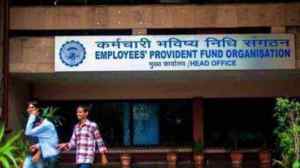Forget terror, let146;s talk trade
It is high time Pakistanis defined their permanent purposes and interests vis-a-vis India. Pakistan8217;s relations with India have so far ...

It is high time Pakistanis defined their permanent purposes and interests vis-a-vis India. Pakistan8217;s relations with India have so far been driven by an adversarial attitude and the vicissitudes of the Kashmir dispute. Following Kargil operations and the 2002 grand confrontation, Islamabad has been desperate for the resumption of dialogue with New Delhi.
This has been a second U turn in policy; hitherto, the Kashmir policy was premised on jihad in the disputed areas forcing India into an acceptable settlement. This has been given up. Politically, it is a big price paid by a military-sponsored regime for resumption of dialogue.
Many questions arise. If only the great strategists in Islamabad could read the situation aright, they would have found it logical to turnaround the Kashmir policy as soon as they were forced into changing their policy of seeking strategic depth in Afghanistan. It was necessary to re-assess the nature of US relations with India 8212; and Pakistan 8212; by trying to understand the larger American strategic needs in Asia.
Was there any understanding of the changes and commonalties in the American strategy between the Bush and Clinton governments before the famous 8216;8216;either with us or against us8217;8217; telephone call? It is doubtful. Far too many Pakistanis thought a Republican administration was pro-Pakistan and a Democratic one was pro-India. There is more to American foreign policy than such simplistic notions.
The US strategy now seeks to make India a strategic partner, the way Japan and Britain are. With Pakistan, the US relationship is cynical flirtation or worse; it is all too temporary, if only Islamabad can see clearly.
It is right and proper that the Musharraf regime has seen the need to go back to the agreements made successively at Simla, Lahore and the abortive one at Agra, and to build on them. That is the only logical course.
In terms of old mindsets, Musharraf has already paid a heavy price by conceding on three major issues. First, Pakistan will not allow its territory to be used against either India or Afghanistan; if fully implemented, it will put paid to Kashmir8217;s jihad insofar as it was Pakistan-sponsored. The Taliban campaign in Afghanistan too will be greatly handicapped.
The second major concession is agreeing to SAFTA the South Asian Free Trade Agreement. If it is implemented fully, and in its true spirit, it will set off a great expansion of trade in the region. The third major concession is starting to favour the people-to-people contacts and, more unusual and difficult for old mindsets in Islamabad, cultural exchanges.
Kashmir is however not to be forgotten. Far too many people in Pakistan are deeply concerned with the issue. A practical solution of the problem must be sought 8212; but through peaceful and negotiated means.
Pakistanis have to think hard of how to make India more flexible and make it ready to make some concessions on Kashmir. It will mean, in realpolitik terms, Pakistanis have to offer over time some kind of a deal that will make India relent and relax. A very good beginning has already been made by the three major initiatives that Islamabad has initiated. All that is necessary to be said is: stay the course.
The purpose of free trade and economic cooperation in south Asia can only be to sustain higher rates of economic growth in all Saarc member states. A single market, and closer internal cooperation, can make for rapid economic development of all.
The pathway to progress lies through regional integration and the region8217;s integration with the rest of Asia and Europe through better communications. Pakistan being at the tri-junction of west, south and central Asia can benefit greatly from overland trade.
What it boils down to is to show India the benefits of friendship with Pakistan. One benefit would be common: economic advancement and more wealth creation. If SAFTA, SAPTA and other steps are taken, there will be all round enrichment.
The second major benefit will be through cultural exchanges and free movement of people. These should be the major objectives for Pakistan8217;s policy-making in future. In this connection, the importance of free travel, preferably visa-free throughout the region, at some stage in future, will be necessary.
The News
- 01
- 02
- 03
- 04
- 05































